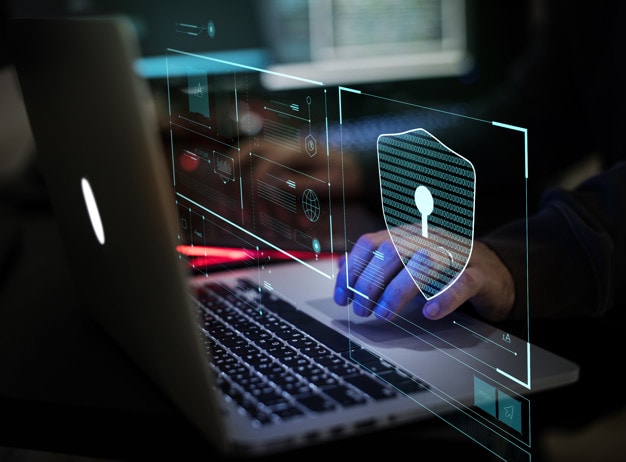- Get link
- X
- Other Apps
- Get link
- X
- Other Apps
Protect Against Cyber-crime
Cybercrime
is a constant threat.
Perhaps you think nothing to fear but that your financial
information is stolen by cyber criminals. But it's not that easy. Your
finances are nowhere near the only thing to worry about. Cybercrime is
constantly evolving and new threats keep emerging.
Given the wide range of crime making headlines in this area, one
might be tempted to avoid the internet entirely. But this step is probably
a bit drastic after all.
Instead, learn how to identify cyber threats. This is the
first thing you can do to protect yourself and your data. It is also
important that you take basic precautions and know who to turn to if you become
aware of online criminal activity.
It would of course be desirable if one could learn to completely
eliminate cyber threats. But unfortunately that is not possible. But
you can take steps to better protect yourself from them.
What Is Cybercrime?
Cybercrime is any type of crime that is committed online or
primarily online. Cyber criminals often target computer networks or
devices. Cybercrime can range from security breaches to the theft of
personal information.
Other examples of online criminal activity are "revenge
porn", cyberstalking, online harassment, cyberbullying and the sexual
exploitation of children. Terrorists also occasionally band together on
the Internet, which moves terrorist acts and crimes into cyberspace.
How to Protect Yourself from Cyber Threats
Every internet user should follow some basic safety rules. Here
are eight tips on how to better protect yourself from cyber threats.
1. Take Advantage of A Comprehensive Internet Security Package
For example, Protegent Free Antivirus Security provides real-time
protection against existing and emerging malware, including ransomware and
viruses, and helps protect your personal and financial information when you are
online.
2. Set up Strong Passwords
Never use the same password for different websites and change
your passwords at regular intervals. These should also be complex, ie
consist of a combination of at least 10 letters, numbers and special
characters. You can keep your passwords under lock and key with a password
management application .
3. Always Install the Latest Updates for Your Software
This is especially true of your operating systems and internet
security software. Cyber criminals often use known vulnerabilities or
bugs in your software to gain access to your system. By installing patches
for these vulnerabilities and bugs, you can reduce the risk of being targeted
by cyberattacks.
4. Manage Your Social Media Settings
Make sure that your private and confidential information is
protected on social networks. Cyber criminals often only need a few data
points to gain access to your personal information. Therefore, the less
data you share publicly, the better. For example, when you post your pet's
name or reveal your mother's maiden name, you're answering two common security
questions.
5. Strengthen Your Security in The WLAN
A strong encryption password and the use of a virtual private
network (VPN) in the public WLAN are a good start. A VPN encrypts all
outbound traffic sent through your devices until it arrives at its destination. If
cyber criminals succeed in hacking your connection, all they'll get is
encrypted data. Using a VPN always makes sense when you are in a public
WiFi network - be it in the library, in a café, in a hotel or at the airport.
6. Discuss Online Safety with Your Children Regularly
You can teach your children how to use the Internet responsibly
without completely prohibiting them from certain communication channels. Assure
them that they can and should speak to you if they encounter online harassment,
stalking, or bullying in any way.
7. Keep up To Date with Serious Data Breaches
If you do business with online retailers or have an account on a
website that has been compromised in a data breach, find out what information
has been disclosed and change your password immediately.
8. Prevent Personal Data Theft
Personal data theft is when someone gains access to your
personal data through fraud or deception, usually for profit. How can that
happen? You could be tricked into divulging personal data via the
Internet. Or a criminal could steal your mail in order to obtain account
details that will be delivered to you in the mail. That is why it is
important to protect your personal information. A VPN can also help protect
the data you send and receive over the Internet, especially when you go online
using public Wi-Fi connections.
- Get link
- X
- Other Apps

Comments
Post a Comment